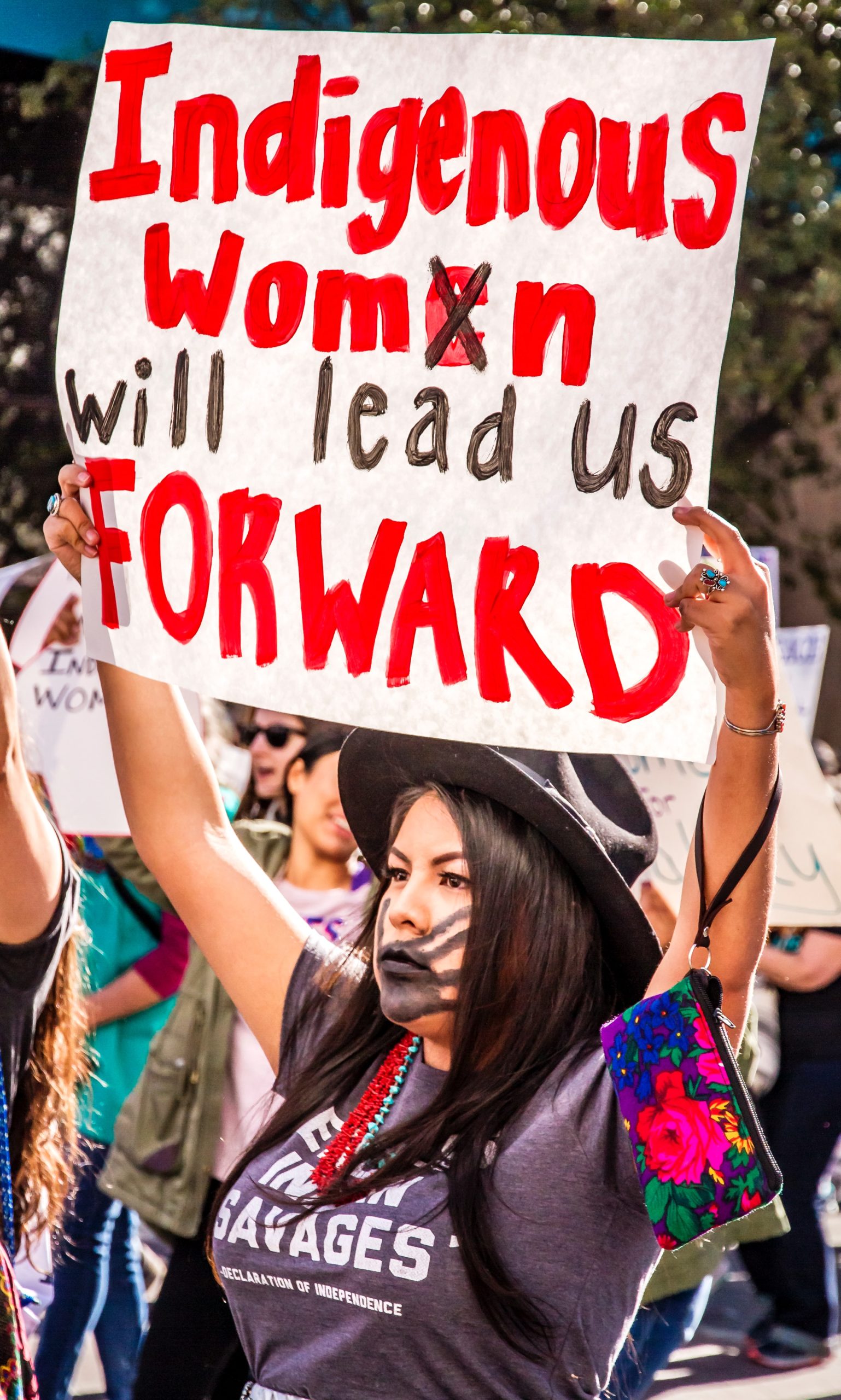How Imposter Syndrome Trauma Impacts Latinas By: Monica Duarte


Being Latina is beautiful, from our culture to our language and even our Indigenous roots. We have a lot to be proud of and grateful for, yet almost every Latina I interviewed for research I’ve been conducting shared with me that they experience imposter syndrome. Imposter syndrome is the persistent inability to believe that one’s success is deserved as a result of one’s own efforts or skills.
I can strongly relate to this as an immigrant myself. I’m originally from México and my parents brought me to the U.S. when I was five years old. Navigating the ups and downs of this new country was challenging. But I never realized I had experienced imposter syndrome trauma until years later. I call it trauma because as a Certified Latina Coach specializing in trauma (who has healed from a lot of it) that’s what it truly is: a trauma. Let me share how this trauma uniquely impacts Latinas and what you can do to overcome this to live your fullest potential.
Colonization
Many people in this world can relate to the idea of imposter syndrome. Yet, for us Latinas (and Latinos), this trauma has much deeper roots that originate from colonization. History shows that when the Europeans invaded our lands, they made a point to try to remove our Indigenous roots. They did so by taking our ancestors’ land, culture, language, and sense of self. This caused deep traumas that taught them it was no longer safe to be who they are or celebrate their culture. Anytime they tried to reclaim their rights, they were abused and even killed.
On an unconscious level, this taught our ancestors that being who they are was wrong and it was not something to be proud of – including their successes. This is how imposter syndrome trauma works. Being constantly told that who you are is wrong makes it nearly impossible to feel good about yourself and your success. So how does it impact Latinas today?
Colonization remains alive today in subtle ways. The past traumas continue to impact us. As we carry the traumas of our ancestors in our DNA, the idea of imposter trauma syndrome becomes something that has taken over our beautiful culture and something that we must heal from if we want to take our power back.

Epigenetics
According to the CDC, epigenetics is the study of how your environment can cause changes that affect the way your genes work. For example, the BBC documentary, The Ghost In Your Genes, explains how the environment and stressors that your mom experienced caused certain parts of your genes to shut off. This means that whatever traumas your mom experienced while she was pregnant with you, – they were passed down to you even though you weren’t born yet. The same goes for your mom’s mom and her mom’s mom and her mom’s mom. Whatever traumas your ancestors experienced were passed down to you even though you weren’t alive when your ancestors experienced them.
So in your DNA, you’re encoded with the history of your ancestors and their past. This is impacting you in fundamental ways without you knowing it. Imposter syndrome trauma is one explanation for why colonization silently affects Latinas. The traumatic events your ancestors experienced that caused them internal pain, a sense of feeling ashamed of who they are, and a sense of not belonging in the world are still alive in our ethnicity from a genetic perspective.
Realizing this can be a huge revelation that can cause sadness and even anger, but there’s hope! Let me share some powerful tools that can support you in healing from this. You don’t have to live with this trauma or pass it down to future generations.
Systemic Racism
When I first moved to the U.S., I remember my parents telling me in different ways not to do anything that would make me stand out. As a child, this impacted me deeply.
In kindergarten, I was in a classroom with a teacher who only spoke English. The pronunciation of my name in my home and country was different. Suddenly, this white lady I didn’t know was calling me a name I didn’t understand. She would get furious at me for not understanding her when she called me this name that was not mine. Soon I realized that my name had changed and I had to be okay with it.
When my parents were working on getting our legal papers, the white man who was helping us yelled at my mom and told her we should go back to México and that we didn’t belong here. I saw my mom crying and as a little girl, I suddenly felt myself feeling ashamed of being Mexican and felt genuine fear for my life.

I’m the first in my family to graduate from college. During my first quarter, I realized how much I stood out from everyone else in my classes who were mostly Caucasian. I learned I had to assimilate into the mainstream culture if I wanted to graduate from school and be successful.
After I landed my first job as a Graphic Designer, I worked with a group of women who made a point to make me feel like an outcast because I didn’t fit in with their culture.
These are some of the many personal experiences I’ve had with systemic racism in the U.S. and I can only imagine what other Latinas have gone through.
We live in the land of the free, but as Latinas, we’re told from a young age that if we want to succeed, we must assimilate and look more Caucasian. Some don’t have the option of doing that because we can’t change our skin color. Being constantly told this causes imposter syndrome trauma. When the outer world is persistently telling you that who you are is wrong – you learn to tell yourself that internally. No success becomes enough because you feel pulled to prove to others that who you are is enough and yet when you do this you’re giving your power away. This only continues to feed into the cycle of systemic racism and the colonization trauma we carry from our ancestors.
So how can you overcome this, begin to take your power back, and own yourself?
Heal From Your Trauma
I cannot emphasize enough how important it is for Latinas to heal from trauma. As a Latina who has done the work to heal, I feel completely different now than I did two years ago. I no longer feel the need to change myself to be liked by anybody, no matter their race or ethnicity. I’m proud to talk about my Indigenous roots and educate others about our culture and experiences.
Additionally, when a Caucasian person is being unkind to me, I tell them firmly and respectfully how I like to be treated. Most of them don’t expect this from someone like me. They assume women like us will shut up, do the work, and keep our heads down. I’m not like that anymore, and it’s not because I’m special. It’s because I did the inner work. Now I speak up, and I’m proud of myself every time. By doing this, I’m teaching others what is acceptable if they want to be in my life. I know I have the right to be treated respectfully, especially as a Latina.
Additionally, I’ve worked with other Latinas who had traumas that caused angry spells and left them feeling unsafe with putting themselves out in the world. By doing trauma work, I have seen their transformation from being angry and feeling small to being more empowered in their lives and free. They’re no longer controlled by those traumas and can finally be more of their true selves.
A note of advice: if you decide to walk this path, make sure that you work with someone — either a therapist or coach — who has the proper training in trauma. They’ll understand your struggles as a Latina who has done the work for themselves.

Connect with Latinas Working on Themselves
There’s nothing more powerful than being part of a community that supports your inner growth. Unfortunately, our culture hasn’t accepted that taking a deeper look at trauma or finding new ways to work through it is okay. Some Latinas and Latinos may push back and say that doing this type of work is for “locos.” They’ll start comparing themselves to us, how hard their lives were and how they’re fine. These individuals don’t understand how trauma works because not wanting to examine your trauma is a trauma response. This is why it’s so important that while you work to heal from imposter syndrome trauma or any trauma you surround yourself with other Latinas who are doing the same. We’re out there; you just have to look.
Learn to Trust Yourself and Access Your Inner Resources
Imposter syndrome trauma happens because you learn to internalize what others think of you and how they treat you. In order to heal from this, you must learn to access your inner wisdom and resources to trust yourself again. In doing this, you’ll start to feel stronger in yourself and more naturally confident. You’ll learn to give yourself what you’ve been seeking from the outside world: validation and acceptance. Imagine knowing and trusting yourself so deeply that you can create your own inner confidence. If you’re looking to go on this path, I highly recommend working with a therapist or coach that will support you in this. You can also find books and online courses that support your journey.
Final Thoughts
My intention after reading this is that it will help you make more sense of yourself, and how imposter syndrome trauma impacts you as a Latina. To support you in becoming aware that you don’t have to be so hard on yourself anymore. Instead, you can begin to take steps to heal. If you have any questions about this that you would like answered in a future article, let us know!



